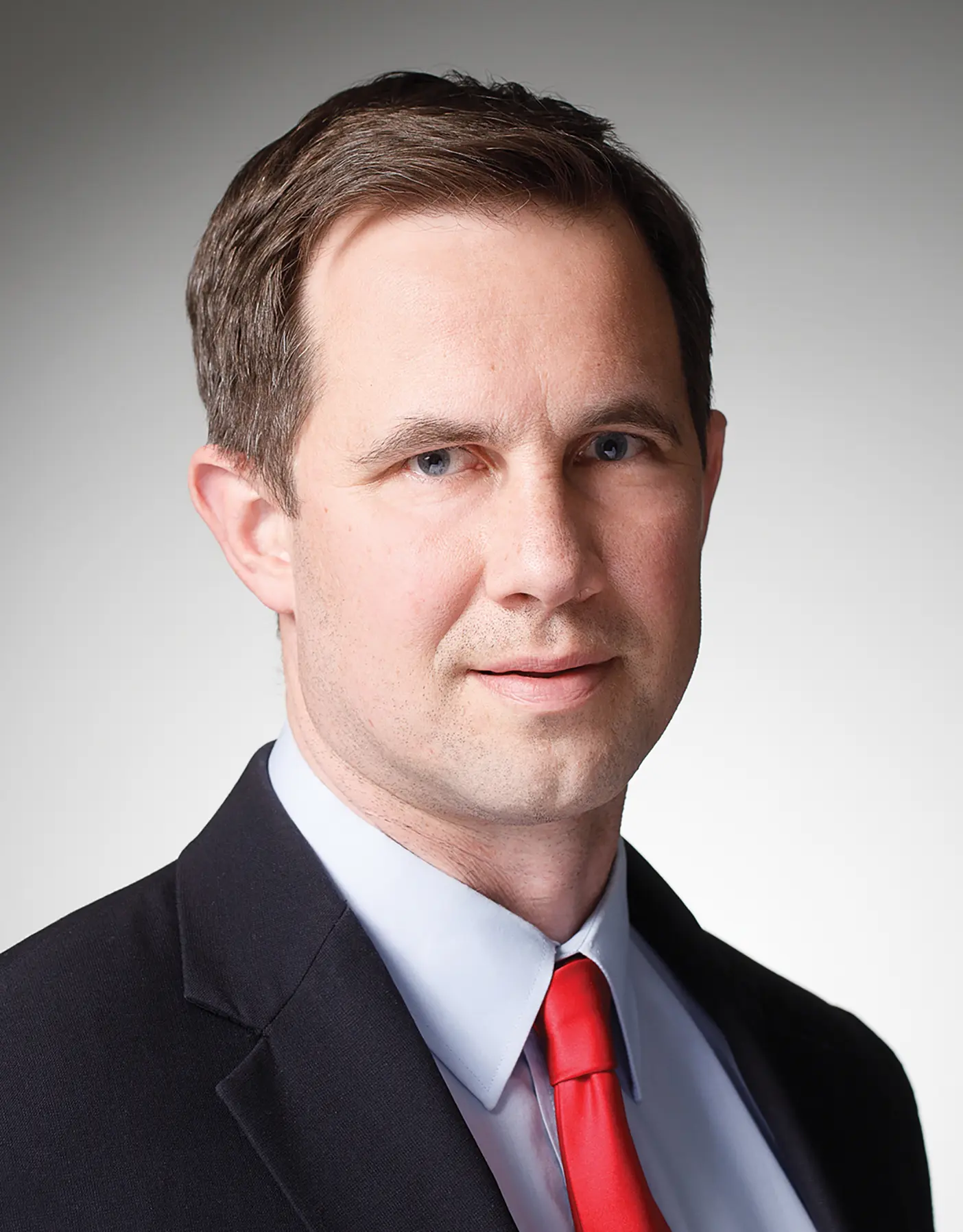A BYU grad finds that scientific understanding, far from undermining religion, helps give life meaning.

Samuel T. Wilkinson (BS ’08) is not one to shrink from a challenge—whether it be earning a mechanical engineering degree at BYU or a medical degree from Johns Hopkins or raising five children. Now an associate professor at Yale and the medical director of the Yale Depression Research Program, Wilkinson’s choice to specialize in psychiatry resulted from his gargantuan curiosity—from wanting, as he says, “to study the discipline that would best help me understand human nature.”
Along his educational journey, Wilkinson’s appetite for understanding bumped into questions about science and faith, and he wondered whether harmony was possible.
Wilkinson’s wrestle with his faith and science came to a head in medical school. In his truth-seeking way, he asked, “What does that mean for faith and God?” He didn’t stop going to church, but he struggled to reconcile the dialogue between his mind and his heart. It became a crisis of faith.
Meeting Harvard business professor Clayton M. Christensen (BA ’75), who came to Wilkinson’s stake conference as a visiting authority, inspired Wilkinson to double down on his faith while working through unanswered questions.
“I tried to share the gospel, be proactive in my calling, and really commit to the Lord with real intent,” he says. Then as he prayed, researched, and sought inspiration in the temple, he “received, in a very personal way, an answer to [his] question.” He calls it “probably the greatest spiritual experience I’ve had in my life; it was just so unusual and profound and singular. It affirmed my faith, and I wanted to make what I learned available for others who struggle.”
Following this epiphany Wilkinson, now a fellow of the BYU Wheatley Institute, set out to bridge the divide between science and faith in his 2024 book, Purpose: What Evolution and Human Nature Imply About the Meaning of Our Existence. In Purpose he cites wide-ranging evidence from many fields making the case that modern scientific findings do not mean our existence came about randomly or accidentally and is therefore meaningless; instead, he writes, they actually imply that life is purposeful.
In the book Wilkinson describes how genetic changes operate under constraints and higher organizing principles. Many species, despite being on different branches of the evolutionary tree, independently develop the same kinds of structures and solutions. This, he says, suggests that although random mutations are important, they are less of a guide than many think. He paraphrases physicist Fred Hoyle, who “compared the probability that evolution would randomly stumble upon the complexity of life we now observe to a tornado passing through a junkyard and randomly assembling an airplane.” Put another way, says Wilkinson, God has given direction to His creations.

As an example Wilkinson points to the abundance of eyes found in nature. While reassorted genes may account for why you inherited blue eyes, “it is not random that you have eyes,” he says, “and that you have camera-type eyes that can refract and focus light. . . . It seems that the development of eyes is written into the inherent self-organizing principles of biological matter.”
Many scientists believe that selfishness directs gene adaptations, but Wilkinson points out that this view doesn’t account for the selfless love found in families and other acts of altruism and compassion—putting others above self, even in dire circumstances. He contends that there is a struggle between good and evil in each of us, a dynamic made possible by God-given agency. “Life is not an accident,” Wilkinson writes in the book. “The way we’re created suggests that life is a test, and one of the purposes of our existence is choosing between the good and evil within us, and that marriage and family are really important to that purpose.”
Published by Pegasus Books, Purpose has received widespread praise from scholars and thinkers across a range of religious backgrounds. Wilkinson hopes the ideas in the book will help students and other truth seekers to understand how faith and science cohere and fall under the big umbrella of Truth. “Ultimately, truth is consistent with truth, whether it be from a religious source or a scientific one,” says Wilkinson. “And as our understanding of each deepens, we’ll see that they are not only compatible but mutually reinforcing.”
Wilkinson has taken the lessons from his research to heart: “[People] are surprisingly poor judges of what is going to make us happy. Humans just do better having a sense of meaning and purpose, which almost always has to do with being part of a family and community.” What he learned from writing Purpose, he says, “reiterates and elevates my role as father. I am wired to look out for and care for my children. . . . That’s the part of myself—the non-selfish aspect—that I need to nurture and strengthen.”












